|
She’s represented GB at two Olympics (London & Rio) and Scotland at two Commonwealth Games. She boasts personal bests of 14:46 for 5,000m and 31:16 for 10,000m, both set in 2019, and she is sponsored by Asics. Eilish McColgan, at only 30 years old, has achieved a phenomenal amount, and she is only getting faster. Looking to step up the distances when the time allows, Eilish is currently focusing on breaking her mother's (Liz McColgan) 10,000m Scottish record and the upcoming (fingers crossed) Olympics where she is hoping to compete in the 10,000m. Eilish kindly took the time to speak to me about all things training in the pandemic, periods, and the upcoming Olympics. We asked her how she has made the most of the current situation. Whilst this year has been far from ideal, it has been a chance to just get stuck into training, what have you focused on in training and have you made any changes as a result of this extended period of training ? "I've focused on building up my volume a little this year as my main goal was to race my first ever half marathon and of course aim to qualifying for the Olympics over the 10,000m too. So my goals were definitely aimed at moving towards the longer distances and increasing my general mileage as typically I only run around 45-50 per week. We also changed the format of my week a little to ensure I have more recovery and a day off which has made a big difference too." For a lot of people, the pandemic has meant training alone, a concept they are very unfamiliar with. However, for McColgan, this is not unknown territory. You seem to train alone (in normal times as well), or with your boyfriend (Michael Rimmer) how do you find this as a lot of people seem to prefer training in groups? "I'd love to have a group but as I follow my mums coaching plan, it's difficult to fit in with other squads without having to change our entire plan. So instead, I've had to just follow my own schedule and continue with the sessions that I know work for me. If I could have a group but keep my mum as a coach - that would be the ideal scenario but unfortunately it's just a little unrealistic with regards to the way our sport works." Something I spoke about in a recent blog post, was periods. Eilish McColgan has spoken out a lot recently about how her menstrual cycle impacts her training and makes her feel. I asked her about her experiences. You’ve recently spoken out about the impact of your periods on training, do you adapt training according to where you are in your cycle or do you only really make changes if your symptoms become more impacting? "I've tried everything and never really found an approach that works. I completely remove all gym work the week of my programme and lessen the intensity of my sessions that week too. It's definitely helped but doesn't solve the issue entirely. This year, I've actually just been fitted with the coil. It's very early days but I'm hoping it will help alleviate some of the pain and symptoms I experience! " You can view Eilish's interview with the Female Athlete Pod where she talks all things periods. Click the picture below to view it. As a runner, you have to be able to push your body to the limit, but how does one of the nation’s best prepare for a tough session?
How do you approach and prepare for tough sessions both mentally and physically? "I go through the same warm up, regardless of what the session is. It's the same warm up I have on race day too so I find that familiarity is usually enough for me to mentally get in the zone for the session ahead." It isn’t just preparing for the session that is important, what you do in it is vital. When things get tough, what drives McColgan to dig deep, whether it is in a session or when times are testing, as they are now. What drives you to dig deep when things get tough, whether that’s in a session or when times are testing like they are now. "I just really enjoy running so even if there were no races going ahead - I'd still run every day and still enjoy training sessions. For me, I get a buzz from pushing myself in training and seeing the improvements month by month. It's enough to keep me motivated." Something we all desperately hope goes ahead, but not quite as much as those athletes preparing for it, is the Olympics. I asked Eilish, How are you preparing mentally for the Olympics with all the uncertainty that surrounds qualification and the games themselves? "Of course it's frustrating not being able to plan your training or racing schedule properly. But I'm really fortunate to have been to two Olympic Games already so it's not something I am going to overly stress about. It is absolutely my goal and dream to make my third games but as much as I want it to be a proper Olympics - I can't see it happening. I think it will go ahead but it will be a watered down version of what we are used to. My aim remains the same regardless - run as fast as I can and hope to PB across the board. My mums Scottish record over the 10,000m is my main goal for the year." Finally, if you could pick your favourite quote, what would it be? "To be the best, you have to constantly be challenging yourself, raising the bar, pushing the limits of what you can do. Don't stand still, leap forward." Thank you Eilish for taking the time to talk to us and good luck for the year ahead!
0 Comments
For those of you who don’t know this Australian superstar, you need to! She is an Olympian, World champs finalist and Australian record holder, and she has been over in the UK, racing here alongside the Diamond League series. The 31 year old Nike sponsored athlete boasts a 3,000m steeplechase best time of 9:14.28 and finished 5th at the 2018 commonwealth games in the same event. She has also competed in the London 2012 and Rio 2016 Olympics. I had the privilege of being in the same race as her and she kindly agreed to answer some questions for all of our benefit. Thank you Gen for being so kind and taking the time to do so! Did you ever imagine that your running career would reach the levels that it has? And what would be your advice to someone who aspires to get to the same level? I definitely didn’t think I would have had this much success. As a young kid I loved running and being active. I was in awe of the Australian Olympians at the time however making it that far in running was just a dream to me. The best bit of advice I could give to younger athletes is make sure you love what you are doing. If you start to lose the enjoyment along the way, the work becomes harder and you will lack the motivation and determination you need to achieve your goals. I have always loved to run and I still do which has helped me so much, especially when facing adversity. How do you find competing in the UK in comparison to Australia?I love to compete in the UK. I think the track & field following here is close to the best in the world. The fans are so loyal and passionate which is refreshing compared to Australia. Australia has some great athletes and decent meets but we definitely can’t compete with the meets and fan base here in the UK. Throughout your career how have you ensured you have fuelled yourself sufficiently in line with changes in training intensity and volume? This is a hard area to control as our metabolisms are always changing with the different training seasons. My rule of thumb is if I’m injured and cross training, I eat as much as my body wants. I don’t deprive it of calories. In base season I eat a lot more carbs, fats and protein to protect my body during high mileage. Then when competition season rolls around my biggest emphasis is on protein for recovery and carbs for energy. Naturally races make me drop a bit of weight so I make sure I stay on top of energy input when that starts to happen. Fuel is so important! What has been your biggest challenge in your career and how did you overcome it? (Both mentally and physically)Countless injuries has been the hardest part of my career. I have had some great results and seasons before, however facing heartbreaking injuries that disrupt your momentum are very difficult. My achilles in 2019 was nearly a breaking point for me but in the end it was my mental strength that got me through. I lean on my husband a lot and it required me to believe I could overcome this injury despite how long it may take. Setting new achievable goals no matter how small they seem is key. You also need someone to believe in you and help you when you doubt yourself. I was lucky to have this as it was my toughest hurdle yet - physically and mentally. When did you find you made the biggest leaps in your progression and what aided this? 2016 was my biggest progression in this sport. It stemmed from consistent training and layering great workouts on top of each other. Once I started racing, I started doing small PBs which converted to confidence. When you are fit, strong, confident and have the layers of training behind you, nothing seems impossible. How do you ensure you stay positive when training and racing? You have to be able to remove yourself from bad races and build off the good races. I have had my fair share of poor performances and the hardest part about my job is letting go of those days, and trying to move forward and fix what went wrong. I am still learning but it is something I have had to get use to. There is always another race around the corner to better yourself. Finally, how do you find going around the international circuit with your husband? It is a dream come true. This is an individual sport and can feel so lonely at times. Having Ryan with me as someone that lives and breathes the same life is a blessing. We do have to be selfish at times to race well individually but we carry each others performances, good or bad, and can be a great sounding board for one another when we need some advice. To follow Genevieve’s journey head over to her Instagram.
My seventh guest is the amazing and wonderful human being that is Kate Avery. Kate holds three World Cross GB vests and seven European Cross Country GB vests to her name. She earned her first international vest in 2009 as an U20 for the World Cross Country Championships and continues to represent GB now. She boasts a 10,000m time of 31:41 and a 5,000m PB of 15:25. Not only is she an amazing runner, but she is also becoming a primary sports teacher and developing her baking skills during this lockdown period. Rumour has it if you're out of flour and the supermarket has none, she's your girl! I caught up with Kate and asked her about how her training had changed as a result of coronavirus and what box sets she is watching during this crazy time. Thank you Kate! How has your training changed as a result of coronavirus and how are you adapting to this?So, I guess the biggest thing is that I am training by myself. I prefer training in a group. My boyfriend is coming with me on the bike for company, but it still isn’t the same as having someone running beside you. As we haven’t been able to access the track, I have just been doing road/grass sessions. I guess the other thing is the gym. I have bits I can use at home and my S&C coach has been great. He has been using TruCoach the website, where he can upload my sessions and there are videos that I can follow. I don’t have much equipment at home, so I have just been adapting my programme to what I can do. The most difficult thing has been reevaluating my goals because none of us actually know what we are training for. We don’t have any dates of races and the races that are still on they are in question as well. As a result, the training we would have been doing now is definitely different to what we are currently doing. I was planning on opening up next month in Stanford, which I’m obviously not doing now. It isn’t winter work again, but it is definitely more like base work. When things get tough, such as being struck with injury or the situation we are in now, what do you do to keep yourself motivated and positive? I think if you had asked me that five years ago I would have had a very different answer to what I have now. I think as you get a little bit older you are able to put things into perspective better and you just have to go with it. Accept that injuries are something to learn form. No doubt, if you’re getting injured, you’ve made a mistake, so just try not to do it again. I have learnt there are bigger things than running. Don’t get me wrong, it does upset me if I can’t run, but following a few major things I have been through in my life, I am able to put running into perspective a lot better. You just have to go with the journey. As a queen of cross country, what is it about the event you love so much? And what advice would you give to people who struggle with the challenge of cross country? I love cross country because it is always different. Out of track and cross I definitely prefer track, but cross is just something fun to focus on. You want to do well and it is frustrating when it doesn’t go your way, but you’ve got to remain light-hearted and just see it as cross-country on its own. As the winter comes around, I like to do cross country as it is a different focus. I don’t want to finish track and then do a few road races and go back to track, I like to have a good focus throughout the winter. I do enjoy doing it for the most part, I didn’t enjoy the Intercounties course if I’m honest. What do you feel you benefitted most from being a full-time athlete and what made you look for some part time work? I’m not running full-time anymore as I just want something else to focus on. Being full-time is great and has a lot of perks. Everything is centered around training. I know it might sound intense, but you’ve got no stresses, you can just get your runs in without fitting it around work. It just makes your life easy, it’s a dream job. It is what you grow up dreaming to do, but there is such a small percentage of the world that can actually do it and are good enough to do it, but if you can it is great. I really enjoyed it, but I just want another focus in my life. If you weren’t an athlete, what would you spend your time doing? This is such a hard question. Could I be a different sports athlete? I would probably want to do something in sport. I would maybe train to do something else, but I don’t think I would want to be a physio or anything like that. Maybe something on the marketing/business side of sport. I would do a job to do with sports as it is something I am interested in and I wouldn’t want me job to drag. What’s your favourite movie/series to binge watch and what do you enjoy doing in your spare time? I don’t really watch much tv. I have barely had it on even in this lockdown period. We just got a record player, so we listen to a lot of music. I do however like a horror film. A series I did enjoy was Big Little Lies and I have the record for the soundtrack. I just watched The Stranger and really got into that. It was very good.
My sixth guest to give answers to my questions, is Steph Davis. After hitting 2019 with a bang, Steph truly found her marathon legs and at the Valencia Marathon in December clocked a staggering 2:27:42, consolidating her position within those in contention of qualifying for the marathon in this years Tokyo Olympics. Steph kindly took the time to tell us a bit about her running journey, thank you!! When you started off on your competitor running journey, did you have your sights on an Olympic QT and when did you really start to believe you could run it?If you asked me after my first marathon (Berlin 2018) if I thought I would achieve an Olympic qualifying standard the following year, I would have laughed. It was always a dream but felt like a distant one. After London I wanted to prove to myself that running 2:32 wasn’t a fluke. I don’t like to place too much pressure on time but it is hard to ignore when everyone knows it (the Olympic QT) is out there. I believed I could get close but from events during training I had my doubts as to which side of that 2:29:30 I would be on. I honestly didn’t believe it was fully possible until about 4km to go at Valencia marathon… What advice would you give to athletes worried about pursing a running career whilst in full-time work?It is definitely possible but I would be really honest about what it takes. You sacrifice a lot for training and sleep. For me it was weekends back home to see my family, catching up with friends on week nights or over the weekend etc. It will ultimately depend on your goal as to how much you need or want to sacrifice. I’d also encourage people to be open with their workplace on their running goals – my company (Lazard Asset Management) have been very supportive of my training and understand the time demands I have. Do you incorporate training camps abroad into your year? If yes, where do you like to go and why?I have never done an organised training camp as such, but when my boyfriend and I go on holiday we like to be able to continue with our routines as much as possible. My favourite place to go is Mallorca because I have been going since I was a kid and know the roads, gym facilities and where to cross train, and the weather is usually spot on!. I have no firm plans to go abroad to train ahead of London marathon, but it is something I would love to do! Do you ever struggle to remain positive? And how do you ensure you are positive going into and during sessions/races?YES! There have been a good few training sessions where I’ve thrown my toys out the pram as things aren’t going to plan. My coach and teammates are good at talking me round when this happens and reminding me that bad/off sessions are normal for everyone, which is so true! I try to keep a log of my thoughts and feelings when off days happen and reassess my expectations for the next training session so I can go in with a more positive attitude. What do you do in the few days prior to a big race and do you have any superstitions?During the taper and lead up to the race, I try to use my free time to catch up with friends that I don’t get to see all the time. Thinking about it now… this has probably been a good way to relax and stop me being all consumed with the race. I don’t have any superstitions, but days before my last 2 marathons bad stuff has happened – my brother was admitted to hospital 2 days before London, and my dog died before Valencia. I ran both marathons thinking of and staying strong for them, but I hope it doesn’t become a trend for me!
In the best year of her athletics career, Alex Bell proved her worth on the world stage in Doha and has just been selected to represent GB in the relay at the European Cross Country Championships in Lisbon. Bell holds many GB vests to her name as well as a sub-2 minutes 800m time. Alex was kind enough to chat to me and answer some questions I thought you would all find interesting. Thank you Alex! Did qualifying for the world champs come as a surprise or was it your aim for that season? And how did qualifying feel after your disappointment from the Europeans the year before? It was my main aim this year to make the team and finally get my hands on a GB vest for track . We specifically delayed the winter season & training as we knew that it was potentially going to be a very long summer season. The disappointment from the previous year definitely motivated me in the dark cold evenings to make sure that I could be on the team this year. It made me in all a more better athlete for that knock as looking back on my season now, it just shows how if you strongly believe in your own goals and dreams, you can and will make it happen.. keep the resilience! How does it feel everytime you get the opportunity to put on a GB vest? It is always an honour as you are in essence carrying the flag for your country and every time you step up on that start line to race you can’t help but feel a sense of pride and belonging. Running sub-2 at Watford in anyone’s eyes is a breakthrough race. What sort of things come after a breakthrough race like that? It had been a target of mine for so long to break the barrier and when I smashed it, there was a huge sense of relief and happiness - even more overwhelming that I front ran in the windiest conditions ever! Once you start to see results and accomplish targets, you get a hunger for more and the confidence grows with you on your journey too. Believe in something enough and you’ll see it happen, not always do these things happen overnight, remember great things take time! How do you cope with the mental side of sport and what do you do to release your mind from running? I make sure I have a good balance and combination of things going on in my life. I’ve never been a one to just sit and mope around, live, eat, breath and sleep running 24/7.. that’s just not me and I’ll probably go insane! How boring would life be! I actually work through the week and juggle that around my training. I love to be in the outdoors, especially with my overweight silly dog called Ted! I think it’s important to not wholly be so focused on athletics and at a younger age try and be involved as many things as you can. It’s the perfect way to find out loads of interesting things and meet a wide range of people. What would your dream post race meal be? Defo a curry with loads of chutney and a banoffie pie to finish too!
My fourth guest Q&A is with the amazing, Hayley Carruthers. Since entering into the world of athletics, Carruthers has taken everyone by storm and proved, you really can be a world class athlete whilst upholding a full-time job. From her inspirational 2:33 PB performance at this years Virgin London Marathon and her England appearance in Toronto last year, to her 9th place finish in the 5,000m at this year British Champs, the future is an exciting one for Carruthers. I spoke to Hayley and asked some of the questions we all want to know. What do you do to ensure your motivation and positivity always stays high when training and racing?I always make time to reflect on good sessions/races by keeping a paper diary. It really helps to be able to look back on key points in training when it went well. I also try to write 3 things everyday that I am grateful for and try to find a positive in even the worst circumstances. What was it about running competitively that you initially found inviting and love?Initially I hated it! I hated racing and just wanted to run because my race anxiety made the race never worth it. But after a couple of months I was ready to try again, and I fell head over heels in love with being able to get the most out of myself as an athlete and as a human being when ‘performing’ under pressure. How do you balance work and training, and what advice would you give to someone wanting to pursue an athletic career, but is worried about the balance?My advice is there is 24 hours in a day. Use them wisely. Sleep as much as you can, and be kind to yourself when you are tired after a long day at work. That can be just as mentally tiring and doing 2 sessions! When it comes to fuelling, how do you ensure you eat enough to meet the demands of training?I go off hunger. Being a marathon runner you are constantly hungry so it’s easy enough. I try not to over complicate it, because that’s just something else to think about. I never ‘restrict’ foods I genuinely just eat what I fancy. Sometimes that’s a chippy tea and sometimes that’s fruit with Greek yoghurt. Having a healthy ‘diet’ and about having a healthy mindset towards food. Food is fuel! What has been your favourite race you’ve done so far, and why?Toronto Waterfront marathon last year when I ran for England for the first time. I absolutely loved every step! My family were there and the race organisers treated us like royalty. It was one of the best weeks of my life so far. Hayley will be competing for England in the Toronto Marathon at the end of this month, good luck!! Thank you again for taking the time to chat to me!
My third guest Q&A is with the phenomenally talented, Hoka One One athlete, Louise Small. Louise has competed for both England and Great Britain from a young age, and has slowly worked her way up the ranks. In 2009 she was a bronze medallist at the European Junior Championships in the 3,000m and 5th at the World Youth Championships. More recently, Louise took home silver in the England 5,000m championships, proving her strong form is ever continuing and is currently working towards the Toronto marathon where she will represent England... another fantastic achievement! I spoke to Louise and asked her a bit about her life and journey as a runner. Thank you Louise for chatting!! As someone who teaches alongside running, how do you get the work/training/recovering balance right?This can be a difficult juggling act for many athletes that combine work with training and competing. As we all know recovery is as important as the training itself but it has definitely taken me several years to find a good balance between teaching and training. I think the most important thing is not to compare yourself to other athletes (whether they are professionals or combining work and training). You need to find what works best for you and a balance that is achievable. Unfortunately, we all need money to survive so for most of us work is a necessity, so it is important to be organised and prioritise time to relax and switch off (whether that is reading a book, having a bath or watching TV). This is not my strong point as I love to be on the go and anyone that knows me well, knows that I tend to make myself very busy! I have learned over the years that I personally like to develop myself as a person in other areas of my life and not just have running as my soul focus. This makes me a happier faster runner. Currently, I am juggling a Masters in physical Education, supply teaching and running. When do you think is the right time for individuals to step up to the marathon?That’s a hard question to answer as I would say it depends on the individual’s motivation, previous training and their injury history. It is important that you have a healthy body and you are fuelling adequately for the extra mileage required before tackling the marathon distance. The marathon appears to becoming a younger person’s game with the likes of Callum Hawkins and Charlotte Purdue now being seasoned pros at the event being only 27 and 28. Now you’re stepping up to the marathon, how do you ensure you eat enough to support the mileage?I am not solely focussing on the marathon (I like track racing too much)! I am having a go at marathons and hoping the training will also support my 10,000m running on the track. Fuelling correctly for a marathon can be a challenge especially as I am not an advocate for calorie counting because as athletes we tend to have an obsessive personality. I believe eating is very much an intuitive thing and your body will tell you if you are not fuelling correctly (growling stomach). I would suggest it is more important to monitor your weight if you are not confident you are eating enough for your requirements and possibly seek a professional in the form of a nutritionist. For me I like to eat little and often so tend to have 3 main meals, plus mid-morning/afternoon snacks and normally something sweet for pudding (I have a major sweet tooth). Do you ever struggle to remain positive, and how do you deal with the mentally tough side of running?I would be lying if I said I am always a positive happy person. I try my best not to lose sight of what is important in life. I absolutely love running and it has enriched my life in so many ways but I also believe that if I couldn’t run tomorrow I would be able to deal with that and channel my ambitious, bordering on obsessive, personality into another passion that I could be successful at. You never know what is around the corner so it is important to live in the moment and lean on the ones you love to overcome any challenges that you are facing. For me, my support network is so important, my family, boyfriend and friends keep me mentally strong when I might be feeling down. They are a constant reminder that they will always love me no matter what. If you could do anything in a day, what would be your dream day?Great question! This is going to sound really sad but probably a long run with all my running friends followed by a BBQ or brunch with all my family and friends together!
My second guest is the incredibly inspiring, British long distance runner and Olympian, Kate Reed! Kate came second at the 2006 World Cross Country Championships, second in the team event at the European Cross Country Championships in 2007, and proving her incredible strength and determination, came 28th in the 10,000m at the 2008 Beijing Olympics! What an achievement. Recently Kate has been battling with bouts of ill- health and surgery, however her determination hasn't floundered, something she proved with a win in the Bath Half Marathon earlier in the year, in an incredible time of 72:44. Every race for Kate 'is a bonus' and she relishes 'standing on start lines and forgetting everything bad that's happened'. Kate has an amazing story to tell, and I asked her a few questions that delved into this story. I hope you enjoy reading what Kate has to say. Thank you Kate for taking the time to chat to me! When you were younger, did you ever think you would become an Olympian? I have always been crazy about sport and after watching the Barcelona Olympics in 1992 (I was 10 years old at that time) I was determined to get to an Olympic Games initially as a Badminton player. I had started Badminton when I was 6 years old and was playing 6 days a week by the time I was 14 representing my County (Avon) up and down the Country in tournaments almost every single weekend. However as fate would have it when I was 14 years old my school PE teachers persuaded me to attend an event over 6 weekends in Bristol hosted by the famous Local Olympian Nick Rose and a local Coach called Harry Clayton. They would go on to become my first coaches when I joined Bristol Athletic Club a couple of months after. On the very last weekend the club brought in a very special guest to talk to us...Jo Pavey arrived and did a question and answer session and I was so inspired by what I heard I knew I had to have a go at it myself (who would have guessed that 11 years later we’d be stood on the startline in the Beijing Olympics together). Very quickly my wish to become an Olympic Badminton player shifted to an Olympic Distance Runner! I was hooked and fell in love with everything about running! I loved being outside instead of stuck in a dimly lit and cold sports hall and I relished the opportunity of doing something different. It helped that at that point in time Bristol Athletic Club also recruited 15 equally talented young girls and it wasn’t long before we were dominating the Road Relay and Cross Country scenes winning every team medal available (we were the Aldershot of today!) It had the added advantage of pushing me to become a better athlete as I was determined to be the best in the club. I am an incredibly determined and stubborn person. I refuse to give up and hate losing so when a career’s advisor sat me down at school and asked me what I wanted to do in the future I said I wanted to go to the Olympics. She sat there and laughed at my answer and said “well we would all like to be like Linford Christie dear but I doubt you can do that as a job”-it was probably the best thing she could have said, I was more determined than ever and everyone who knew me knew it was what I intended to do. There is nothing more satisfying than being able to prove people wrong! How do you make sure you eat enough, especially with a high mileage?I only run around 50 miles a week but I cycle most days on a spin bike to supplement my training. I always have the same breakfast of gluten free toast with almond butter and jam followed by a cappuccino made with whole milk. I don’t tend to eat a lot during the day (I should know better at my age!) and quite often it’s food on the go as I train about 30-40 mins away from where I live (sometimes longer when traffic is bad) so I often take a cereal bar, a squeezy yoghurt or some cheese and apple chopped up. Quite often I’ll stop off in Waitrose on my way home and buy a pack of sliced ham or beef and a Kefir Yoghurt Drink and munch on that on the drive home (nothing like a big protein hit!) I always have a very healthy evening meal (always cooked from scratch and always gluten free) I try to eat red meat at least once a week to keep my iron levels up (I’m not a fan!) but I prefer chicken or fish. I cook with a lot of spices as I love flavour. Quite often I’ll have a slice of homemade quark cheesecake or some other culinary treat I’ve baked during the day. I’ve always loved cooking and particularly baking which became a saviour for me when I spent so long in and out of the sport battling ankle problems brought on by a post op infection in 2010. Getting in the kitchen and making something healthy and tasty got me through the darkest days and I was determined to make myself as healthy as possible to give myself the best chance of healing after the 12 ankle surgeries I’ve had to go through. I use a lot of supplements (all of them drinks so I get pretty full up on them!) I’m very lucky to be supported by the supplement company Revive Active who supply me with their incredible drinks, I also use Immunocal at night (a protein drink proven to enhance the immune system) which I feel helps me recover from training. You seem to enjoy cooking a lot, what are some of your go to recipes pre and post training?Some of my favourite meals have to be wild Alaskan Salmon Curry with spiced cauliflower and pilau rice or fresh tuna with sticky Thai rice and lots of fresh ginger, lime and coriander. I also love making caramelised onion and goats cheese tartlets and nothing beats a roast chicken dinner with stuffing of course! I love coming home after a Sunday long run to a slice of homemade Carrot Cake or a Beetroot Brownie and a coffee-always seems to hit the spot! I try to eat Organic as much as possible and keep food as real as possible. Don’t think I can remember the last time I consumed a ready meal (not that it’s easy to find a gluten free one anyway!) I have a strong belief that diet can heal the body in ways that aren’t yet fully understood. I think diet is a very individual thing and it’s about finding foods that allow us to perform at our best and it’s probably different for everyone. I’m really into boosting gut health so I try to consume a lot of prebiotic and probiotic foods. Is positivity ever something you struggle with? Do you go through stages where you stages where you struggle to motivate yourself?I’m very lucky that I’m an incredibly positive glass half full person. I feel very blessed that I’ve had the experiences that I’ve had in my life and I cherish all the special moments the sport has given me. I’ve never woken up and not wanted to run so when I couldn’t either due to illness or injury I found it very hard and had to find things to keep me busy and stop myself stressing. I have a supportive family and coach (Alan Storey) and a close network of friends who I’ve known since childhood so when things are tough they rally round and keep me positive. I’ve always believed that we should use the gifts we’ve been given to best effect so I have always given 100% in everything I’ve done anything else would be a disservice to ourselves and those who support us. How do you cope mentally with injury?I was always very lucky at avoiding injury as a young athlete and even now my issues have mainly been as a result of ill health rather than over training or unfortunate accidents. I was diagnosed with Spondyloarthritis in 2014 although I suspect I had struggled with this since my early 20’s. Sadly it runs in our family so it was probably inevitable I’d also suffer with the Condition. I went through a number of years of trying different immune suppressing drugs but all of them made me feel terrible and I couldn’t do the one thing I wanted to do which was run so I now rely on lots of physio, simple anti inflammatories and a healthy diet which seems to dull down most of the symptoms. It is hard to go through all the surgeries and comebacks but I’ve come so far since doctors resuscitated me on two occasions due to the pseudomonas infection and osteomyelitis in my heel in 2010 that it would be cowardly to give in to it now. Each race is a bonus for me now and I relish standing on start lines and forgetting everything bad that’s happened. There’s nothing like winning a race to bury all the struggles! What would be your one bit of advice to young, upcoming athletes?I think my advice to any young athletes coming into the sport would be to enjoy the journey and celebrate every success. I often wish I had taken more time to reflect positively on my wins rather than just focusing on the next race. I have been very driven throughout my career and I almost came to expect myself to win most races I entered, I didn’t feel comfortable celebrating each good performance I always just assumed there would be a bigger better one around the corner. As humans I think we always want more but that can put a lot of pressure on young athletes. The sport has to also be about forming friendships experiences and building self confidence that can be translated into other aspects of life. As with everything it’s about achieving a balance.
Today’s Guest Q&A is with Swansea Harrier and Lamar alumnus, Verity Ockenden. Verity is an inspiration and role model to all young athletes trying to pursue their athletic dreams as she gives running her all, whilst retaining her love for food, as a sous-chef, and continuing to write poetry. Verity has represented both England and Great Britain, and was a bronze medalist at the British Champs 10,000 road race, Vitality 10k. I spoke to Verity and asked her some questions that will be of interest to us all. How do you manage the athlete/work lifestyle?I work three to four days a week as a sous-chef, a job that I chose for it’s flexibility. I’ve been honest from the get-go with my employers about how sacred running is to me, and I was prepared to wait for the job that would appreciate this. I’m very fortunate that Messums are so supportive, particularly when I get surprise call-ups or my race calendar changes. Day to day, I still have to be careful not to over-do it however. Time off really has to be time off. You can’t work all day, and then go home and do something else on your feet. You have to sit down. It isn’t always easy to fit training in, for example on a winter Sunday when I work 8.30am until 4pm and still need to fit a 2 hour run in. In times like those, the best strategy is to be well prepared; people laugh at the amount of luggage I always have with me, but having food, water and running kit 24/7 ready to run straight from work saves precious time and means I am eating my recovery meal and getting to bed earlier. How do you ensure you eat enough alongside training?I love food and I work in a kitchen, so I am constantly getting offered exciting new dishes to taste and we always use beautiful ingredients. But at home, I quite literally just follow my gut instincts. If I’m hungry, I know it’s for a reason, and if I’m craving something particular (usually liver, broccoli, orange juice or dark chocolate) it’s because my body needs it. I never weigh myself, so I don’t base my intake on that, but rather on how I’m feeling. Sometimes a pitfall has been forgetting to take a post-training snack with me, but knowing how important it is to refuel quickly I never feel guilty about stopping in the nearest service station for a smoothie and a wrap even if that isn't the ‘perfect’ thing. Something is always better than nothing. What would you say to someone wanting to pursue their running career, but isn't sure if they can go anywhere with it?I would always go for it, it’s good to be a yes person. Does it matter if you try and you don’t get anywhere? For me it doesn't, and for me the most annoying people in the world are those who haven't tried and want to tell you you’re doing it all wrong. I don’t think you need to sacrifice anything major to run well either, so what’s to lose? Being unsure might even be the best thing to be; look at the things you don’t know as exciting presents to unwrap in the future, never something to worry about. You just can’t predict if you’re going to be a superstar or a nearly-but-not-quite - if we did we’d be boring, and arrogant. I think if you’re doing the thing you love, the outcome is just a bonus. How do you stay motivated in the middle of a race when the pain kicks in?I prepare myself for this beforehand. I think the easiest place for it to all fall apart mentally is that tiny moment of hesitation between knowing a question is being asked of you in a race, and coming up with the answer to it. So you can remove that moment from the equation by already knowing your answer before you start, and the more engrained as an automated response you can get it, the better. During the Vitality 10K when it began to hurt, I asked myself if I had hurt more than that in training, and the answer was yes. So I made myself go to that place. I pictured the exact stretch of road I’d hurt more on during my last workout where I’d run a really fast last mile to finish a 10 mile tempo. I just imagined I was there again, and I knew I could definitely do the same thing over 6 miles. Finally, where do you want to be in 5 years time? In 5 years time I’ll be 33 and I honestly don’t see much changing. Although I’ve learnt so much from my various experiences in life, I’ve always been the same person inside and I think it’s my character more than anything else that makes me good at running. I aim to stay the same in that respect, and I hope it continues to earn me joy in my results. I love to push the limits of my mind and body, so I think I’ll still be in great shape to keep doing that for a long time. I don’t really think about the times or the placings that might take me; I’ve been surprised so much already on my journey, that it would be limiting to have too rigid a plan - I try to focus on just being my best in the present moment.
Thank you Verity for showing us all that if you love something enough, you should follow your dreams and never be left thinking 'what if'. Please follow Verity instagram page here. |
Q&A'SAsking the questions we all want to know. Archives
February 2021
Categories |
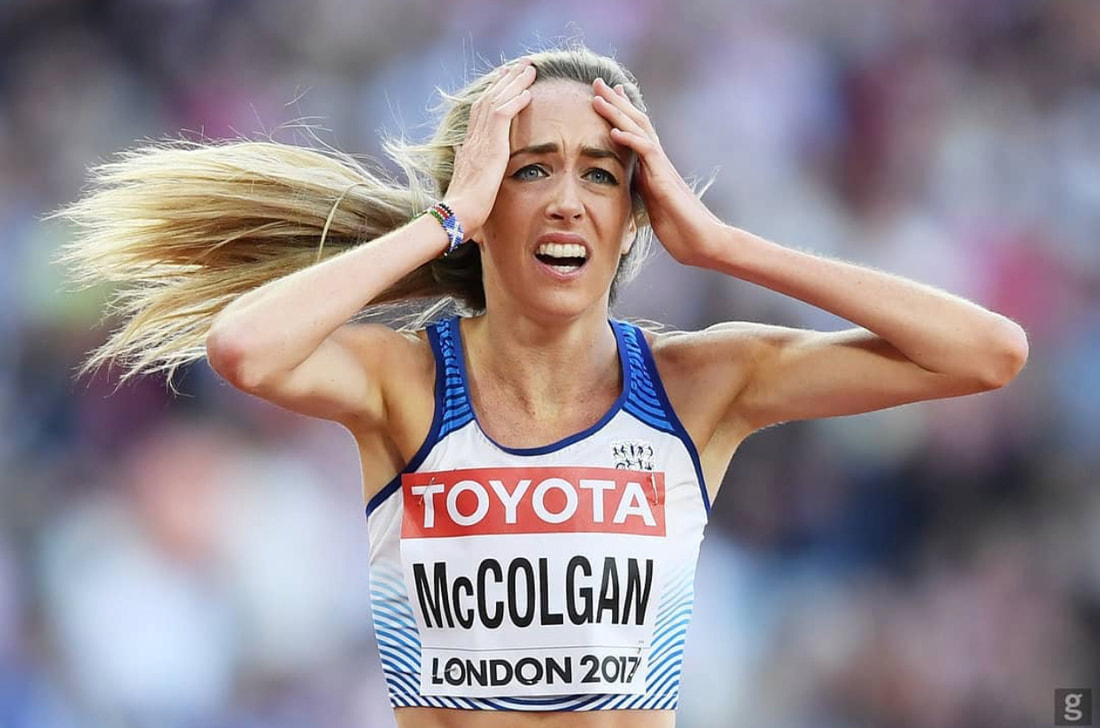

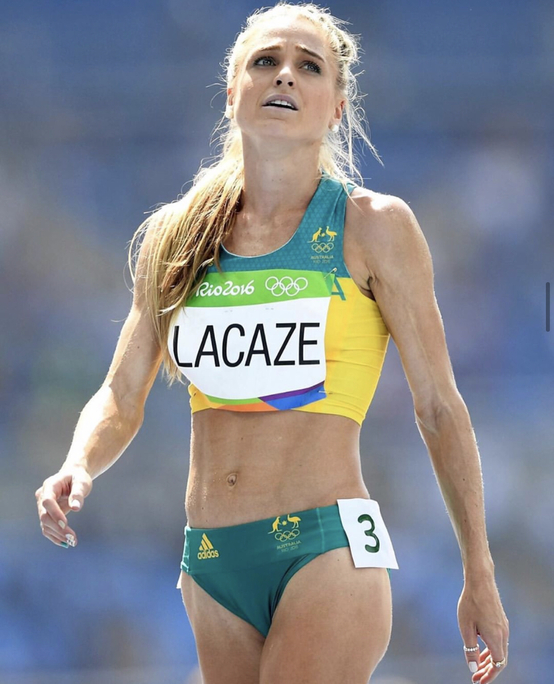
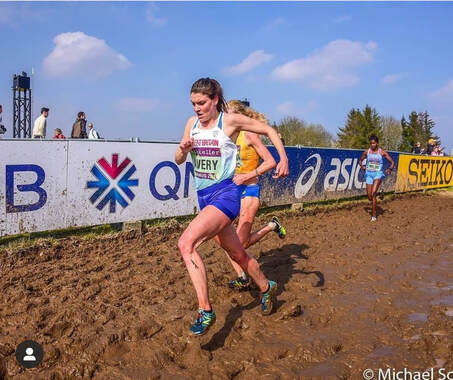
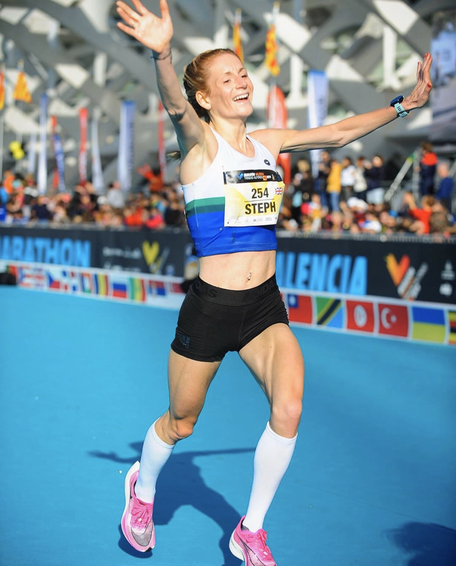
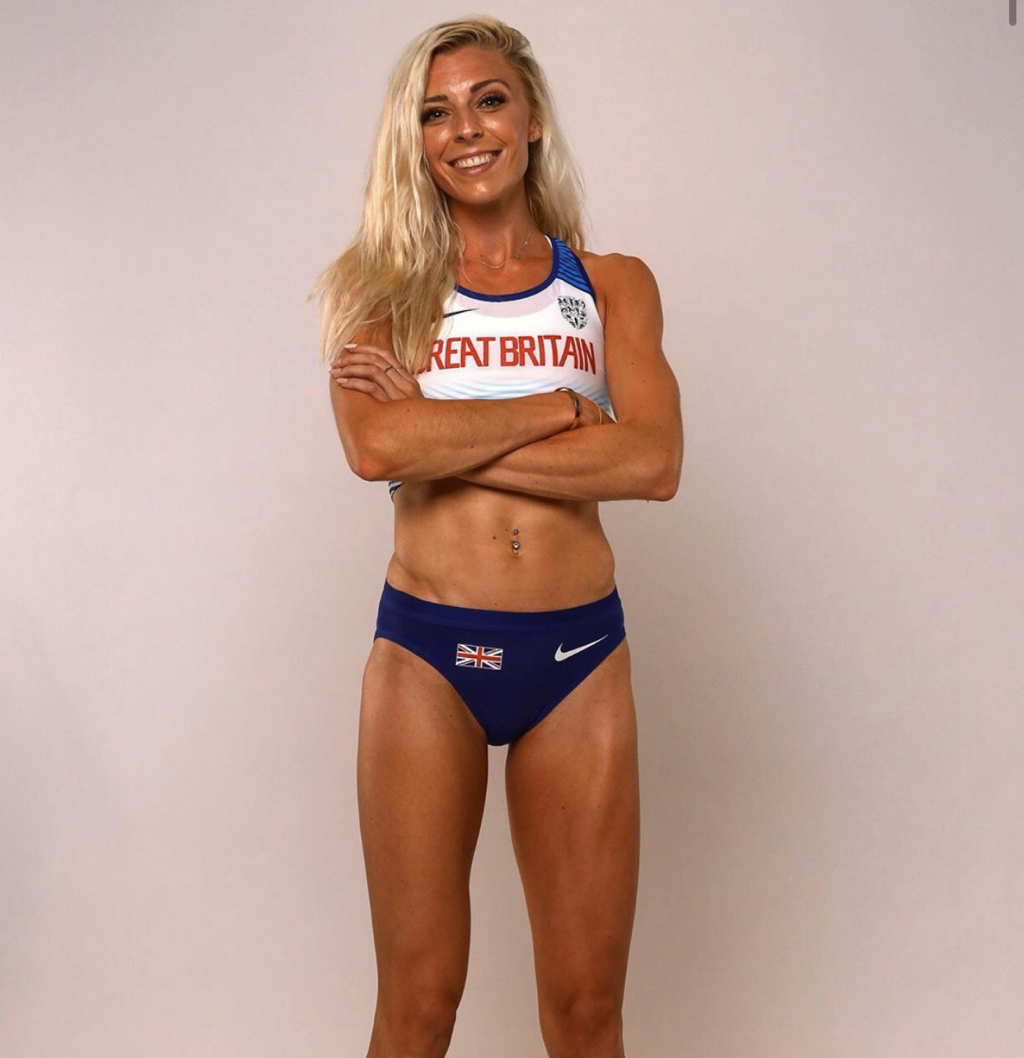
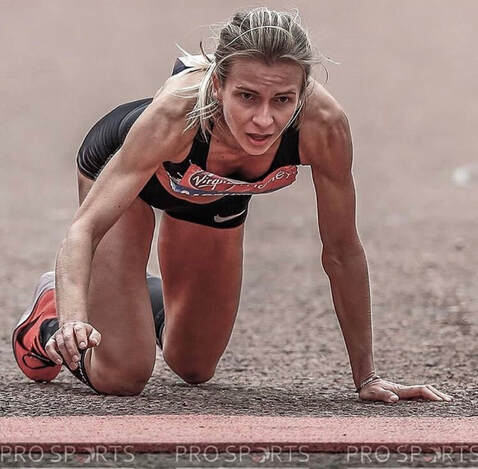
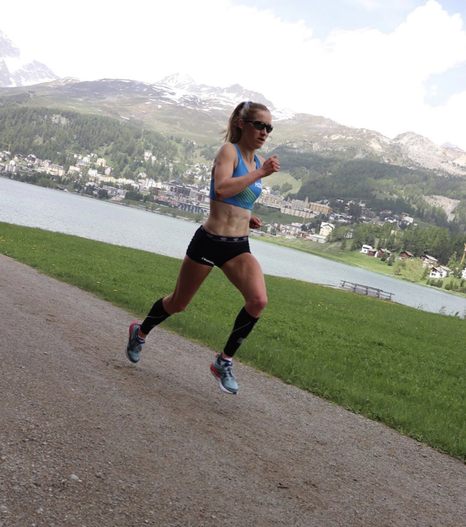
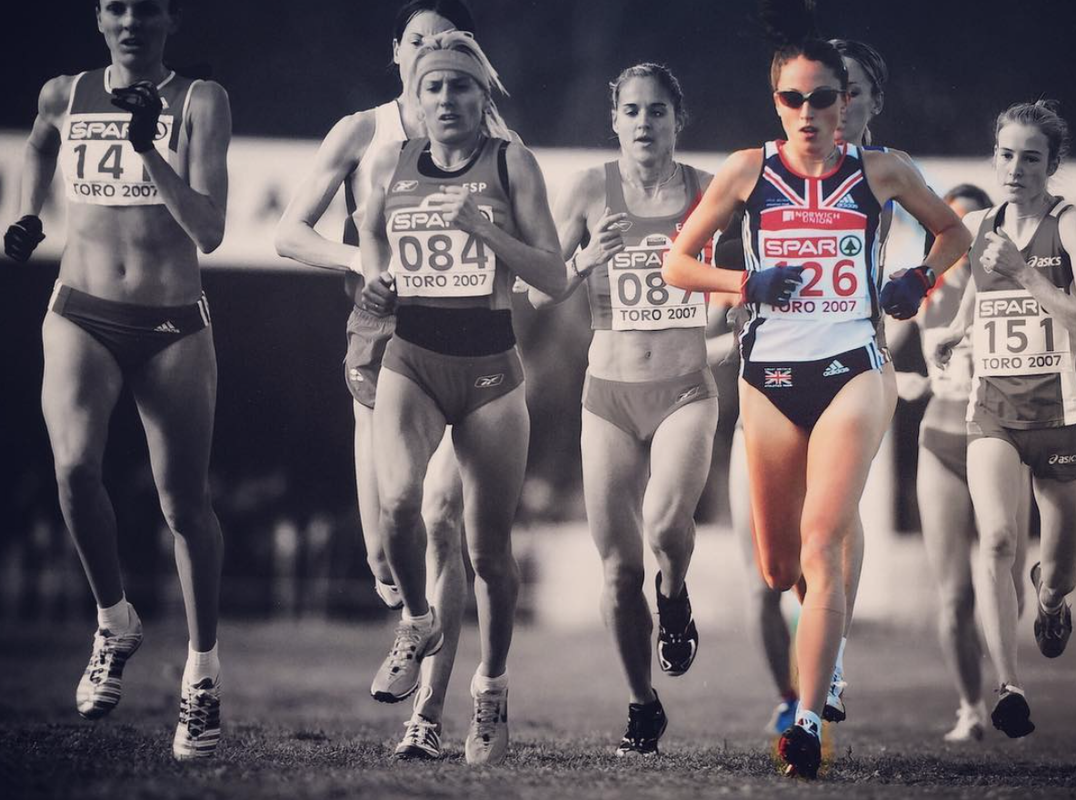
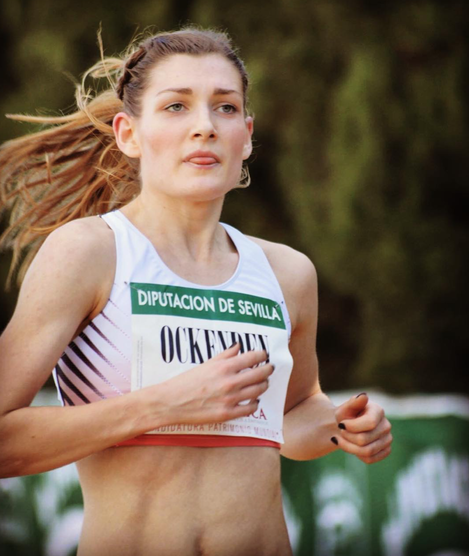
 RSS Feed
RSS Feed
